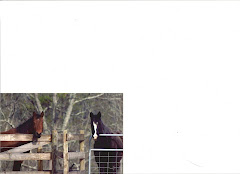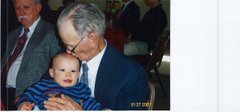We are having a little go round in our church worship committee about language... which version of the Bible to use... which hymns are acceptable... how to describe the Indescribable. I am feeling alienated... lonely... dissed, as the teenagers say. My history, the language I learned as a child, is no longer acceptable at any time or place in my church. It is an ironic paradox. I, who was cast out from my Baptist church home because I refused to be constrained by a literal, fundamentalist interpretation of the Word, am now feeling hemmed in by an equally narrow genderless inclusive language standard.
I am old enough to remember the Good News For Modern Man translation and the screams of outrage that accompanied its publication. It was not holy enough. It was too simple. It was not the King James version and everyone knew THAT was the final and true Word of God. It didn’t come in a soft leather version with your name stamped on the cover in gold lettering... just a plain paperback book in the language of the times.
On my bookshelf there are many different translations of the Bible..the Amplified Bible, the Oxford Annotated Bible in Revised Standard Version, the King James Version, the Good News for Modern Man, the Inclusive Language Version, the Cottonpatch Gospels and Letters, a Catholic version, the Apochrypha. I love them all. Our language history as Christians is so rich and many layered, so full of textural meanings in all the different languages of Aramaic, Greek, Hebrew, Latin. I cannot read those languages but I can trace our evolution as a faith by reading and hearing voices from the past, unrevised, standing on their own, as witnesses from their time. It grieves me to be cut off from the richness of our past in worship.
When Michael was a seminary professor, I grew accustomed to conversation about New Testament studies, the double meanings of many Greek words, textual criticism, historical context for all translations, archeological discoveries that gave new meaning to old words. One of our friends was part of the Jesus Seminar that tried to determine what Jesus actually said in the gospels. The focus was on expanding understanding of the Word by studying it in many different ways. The great gift of the Bible is the fluidity of its language... it has a life of its own that cannot be contained in only one translation.
I am an educated person. I can read Shakespeare and the King James version of the Bible and appreciate them... the beauty of the language, the poetry, the imagery... Though I speak with the tongues of angels and have not love, I am nothing... The Lord is my shepherd, I shall not want... I will lift up mine eyes unto the hills from whence cometh my help. I can remember the freedom that came with an English translation of the Bible, sanctioned and approved by the powers of the day. I can celebrate my Christian history in that translation. I yearn to hear that lovely language given context and meaning in our worship.
I am an educated person. I can read the Amplified Bible with its reference system, bibliography, glossary, concordance and introductions to each book. Its references to Greek English lexicons, the Tyndale Bible, the Wycliffe Bible, its alternate translations for phrases and words... they teach me how complex and wonderful this book is. It has survived and flourished through each generations attempts to redefine and rewrite it. I yearn to hear that complexity and richness reflected in our use of the Bible in worship.
I am an educated person. I can read the Cotton Patch version of the Gospels and the Letters written in southern vernacular. Clarence Jordan, its author, was a seminary graduate, fluent in Greek, living as a farmer in a community he founded in southwest Georgia, a community of black and white folks who suffered for their vision of the peaceable kingdom. They were bombed, their farm products were boycotted, their children scorned in the local schools because they dared to live as Jesus commanded. I want to hear the language of that prophetic voice speaking in the language he loved.
I am an educated person. I can read the Inclusive Language version of the Bible and appreciate the scholarship and striving for authenticity in this new language. How do we include all people with adjectives that describe, not nouns that define? Some hair splitting is always present when any translation takes place. The argument for "dominion" in place of "kingdom" recognizes that dominion is also a male-oriented word. Judgements are made based on our best guesses as well as the certainties of meaning. We seek to expand the definitions and language in our current culture to bring everyone to the communion table. I want to hear this new expansive version of scripture also.
I am an educated person. I can read the Apochrypha and wonder about all the writings that are not a part of my Bible. Why not the Gospel of Phillip? Or Thomas? What about the Gnostics and the Dead Sea Scrolls? How much do we not yet know about this holy book of ours? The UCC motto says "God is still speaking". Maybe our listening and hearing of the Word could be stretched by exploring some of the written material that we have not yet heard.
I am an educated person. I study history and like Harry S. Truman, fear we are doomed to repeat our mistakes if we do not learn from our past. The current war in Iraq is an example of not learning from the history of the Viet Nam war. Our past languages and stories cannot be discarded without paying a price. In our families we tell stories about the past. Remember when we sat on the porch and Uncle Bill set off the fireworks and one went off early? Remember when your sister died? All of the translations of the Bible are our family history. Reading Shakespeare teaches me truths that transcend time and language. Reading all the versions of the Bible teaches me no one generation or group of people have ever had or will ever have the whole truth and nothing but the truth about this ageless book. We need to hear and read it all... not just the versions we agree with. Only then can we be truly educated in our faith, rightly dividing the Words of God, incarnating the wisdom contained in the different languages, living out the one great commandment to love God, love our neighbor and love ourselves.
I am an educated person. I can read and think and decide what is right for myself. I can listen and hear voices that are different from mine without anger or fear. I do not expect my point of view or my beliefs to be the standard by which all others are measured nor do I want to be judged by others beliefs and points of view. I do need to be heard... to hear all the voices from the past that have added to our collective wisdom... to have my history respected... not to be told I must live with this pendulum swing of language as penance for all the patriarchal sins of the past... to be able to laugh at the absurdity of certainty about faith language. We are once again rewriting the Bible in a new language model. It will not be the last translation of this wonderful book. It is just the latest one. Loosen up... lighten up... love it up... laugh it up... we don’t have the last word. God does...
Subscribe to:
Post Comments (Atom)









No comments:
Post a Comment